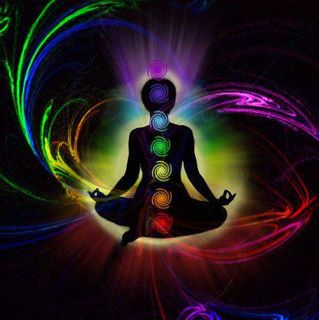 |
| Photo Credit: Colin Dye | Lost Art of Spiritual Reflection |
A Quiet Mind is Good for Reflection
Psychologists
say that people generate around 300 self-thoughts per minute. Pascal the mathematician
said, “The sole cause of man’s unhappiness is that he does not know how to stay
quiet in his own room.” The room that Pascal refers to is your mind. As Swamiji
has said in many of his discourses, a person’s mind is never in the present
moment, it vacillates like a pendulum from the past into the future. All
thoughts which one gets are usually negative or of events which have adversely
affected you – “that person had said this or did this to me, so I have to say
this or do that to him/her”. The mind is almost always in a reactive mode, there
are very few people who stop, step back, analyse and then decide on the
response to be given in certain situations.
Successful
people in all walks of life become so because of their decisions in critical
situations. And decisions require more than anything else, quiet time inside
your own head to think and arrive at a rational decision to a problem. A mind
which is an ocean of calm is good for reflection and introspection. Throw rocks
in it in the form of continuous thoughts and the ripples never stop and the
turbulence in the mind increases, resulting in headache, migraine, stress.
Suppose you are asked to carry a heavy burden, say a rock, you will most probably
say that you cannot do it. But if you are told that bundle hold gold or untold
wealth, then you definitely find the strength to carry it – this just goes to
show that burdens are nothing but weights on your mind. As per Vedanta philosophy,
a deep state of reflection is called manana which is part of the
three-fold process which contains shravana (hearing the truth), manana
(reflecting on the truth), and niddhiyasana (living the truth) –
which in combination is the path of true knowledge. Once you embark on the
spiritual path, knowingly or unknowingly this is the process one follows. This
has been followed by true seekers in Bharat (India) for thousands of years.
In a fast world
where inventions and innovations become obsolete even before they take hold, a
world which is rife with distractions, there are few things which feel better
than remaining quiet, sitting in completely calm solitude, reflecting on what
you are doing and why. Practicing ashtang yog – the eight-fold path of
yoga helps quieten the mind and turns you inwards. If you are not deeply
spiritual and just want to reflect then a quiet walk, exercise, indulge in a
hobby – anything that helps you relax the mind will do.
It is fair to
say that we are not living in deeply reflective times, in fact today with the
pandemic, political turmoil across the globe, natural and man-made disasters –
we are living in really turbulent times. So, to keep the mind calm, reflective
and turned inwards will require one to practice meditation and mindfulness to
turn the mind into an ocean of calm which cannot be disturbed.


2 comments:
🌹
Thankyou🌸❤️
Post a Comment